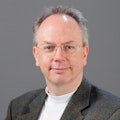Mathematics
The School of Mathematics offers an exceptionally wide range of opportunities for postgraduate studies in mathematics.
The programme aims to offer knowledge and expertise for a career in the academic world, or to pursue a variety of other opportunities in which a strong mathematical background is important. Past students are on the staff of universities in the UK and abroad, and senior statisticians and managers in industry and business.
Available research areas
- number theory
- functional analysis and spectral theory of ordinary and partial differential operators
- calculus of variations and partial differential equations
- numerical analysis
- theoretical and computational fluid dynamics
- operator algebras and non commutative geometry
- algebraic topology
- algebraic geometry
- combinatorics
- quantum field theory and statistical mechanics
- conformal field theory and vertex operator algebras
- image processing
- operational research
- time series analysis
- probability theory and statistics.
Distinctive features
- Lively research environment, extensive seminar programme.
- Conference and workshop support, including annual Welsh Mathematics Colloquium.
- Optional participation in undergraduate teaching, including HEA accreditation.
- Colloquia are held regularly and each research group has a weekly research seminar.
- The School hosts and participates in frequent workshops organised by WIMSC research clusters, with which the research groups are associated.
- The many collaborative projects with groups in other institutions in the UK and abroad, bring a steady stream of distinguished visitors to the School.
Key facts
| Mode of study | Full-time, part-time |
|---|---|
| Qualification | PhD, MPhil |
| Full-time duration | PhD 3.5 years; MPhil 1 year |
| Part-time duration | PhD 5 years; MPhil 2 years |
| Start dates | January, April, July, October |
As a research student, in the first and second year you will follow an agreed programme of lectures and reading courses agreed with your supervisor to introduce you to research skills and methods, and to advance your knowledge in your chosen field. These include formal assessment.
This includes a broad choice of postgraduate courses provided through the national collaborative networks:
- MAGIC (for pure/applied mathematics)
- NATCOR (for operational research)
- APTS (for statistics).
Regular seminars in all subject areas, as well as the Cardiff Mathematics Colloquia and the yearly Welsh Mathematics Colloquium, provide insight into cutting-edge research.
Moreover, research students benefit from a carefully developed graduate program including computational, presentational and subject-specific skills.
Students will also write a substantial end-of-year report and give a seminar in the department.
The PhD programme leads the student, through taught courses and individual project supervision, to the frontier of an area of mathematics, with the aim of creating a piece of original research, written up in the doctoral thesis. In the process, the student acquires essential research, problem-solving and communication skills. The MPhil programme is similar, but less ambitious due to its more limited scope; work on an MPhil can lead on to completing a PhD.
Skills developed
In addition to in-depth knowledge of a mathematical research area, PhD students gain general research and presentation skills, and (optionally) undergraduate teaching skills, HEA accreditation possible.
The School of Mathematics offers an exceptionally wide range of opportunities for postgraduate studies in mathematics. The academic staff are engaged in research projects in fields that are as varied as number theory, functional analysis and spectral theory in pure mathematics, image processing, operational research, statistics and quantum field theory.
Many research projects undertaken by members of staff in the School are being generously funded by the public and private sectors. The leader of the Operator Algebras and Non-Commutative Geometry group is the co-ordinator of the European Network on Non-Commutative Geometry funded by the EU TMR programme. Other sources of funding include EPSRC, Leverhulme Trust, NATO, INTAS, Ministry of Defence, Wellcome Trust, GlaxoSmithKline, Proctor and Gamble.
We have close links with several universities and institutions abroad. These include the Institute of Advanced Study in Princeton, the Australian National University and the Australian Road Research Board in Melbourne, Ecole Superieure d'Electricite in Gif-Sur Yvette, ETH in Zurich and universities in Canada, the Czech Republic, France, Germany, Italy, Ireland, Norway, Saudi Arabia, Japan, Malaysia and USA.
Research environment
The individual research groups run weekly seminars with guest speakers, and postgraduate research students regularly attend the seminar in their research area, and are encouraged to profit from talks in other areas, too. We organise about three mathematics colloquia with distinguished guest speakers per term.
Moreover, Cardiff is the venue for a number of international workshops and conferences organised by members of the School , thus giving postgraduate students a welcome opportunity to learn about world-leading current research. They are also encouraged to take part and present their results at major conferences in the UK and abroad.
At the annual Welsh Mathematics Colloquium at Gregynog, postgraduate students can showcase their work in the group of Welsh Mathematics departments.
Supervisors
Informal contact with potential supervisors in the School of Mathematics is recommended before applying.
Research areas
A broad variety of careers in academia or industry.
UK government postgraduate doctoral loans
Candidates for the Professional Doctorate programme may be eligible to apply for a UK government postgraduate doctoral loan.
Find out more about UK government postgraduate doctoral loansFunding
A small number of EPSRC-funded doctoral training grants are available for UK/EU applicants, awarded on a competitive basis, subject to research council residence requirements.
See our latest PhD studentships and projects and find out more about other funding opportunities.
Tuition fees
Students from the UK
Get the latest information on postgraduate fees.
Students from the EU, EEA and Switzerland
Get the latest information on postgraduate fees.
Students from the rest of the world (international)
Suitable for graduates in Mathematics (or a suitable related field). A 1st or upper 2nd class UK Honours degree, or equivalent is required.
English language requirements
IELTS with an overall score of 6.5 with 5.5 in all subskills, or equivalent. Please see our English Language Requirements guidance for more details.


